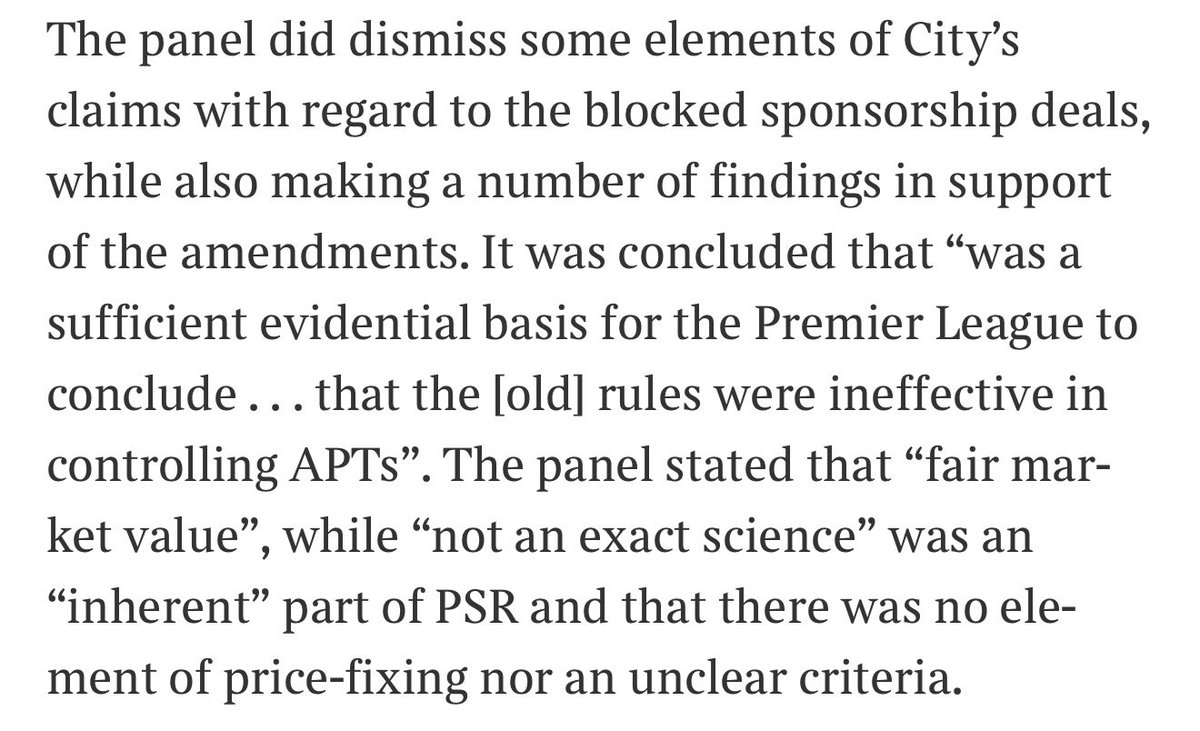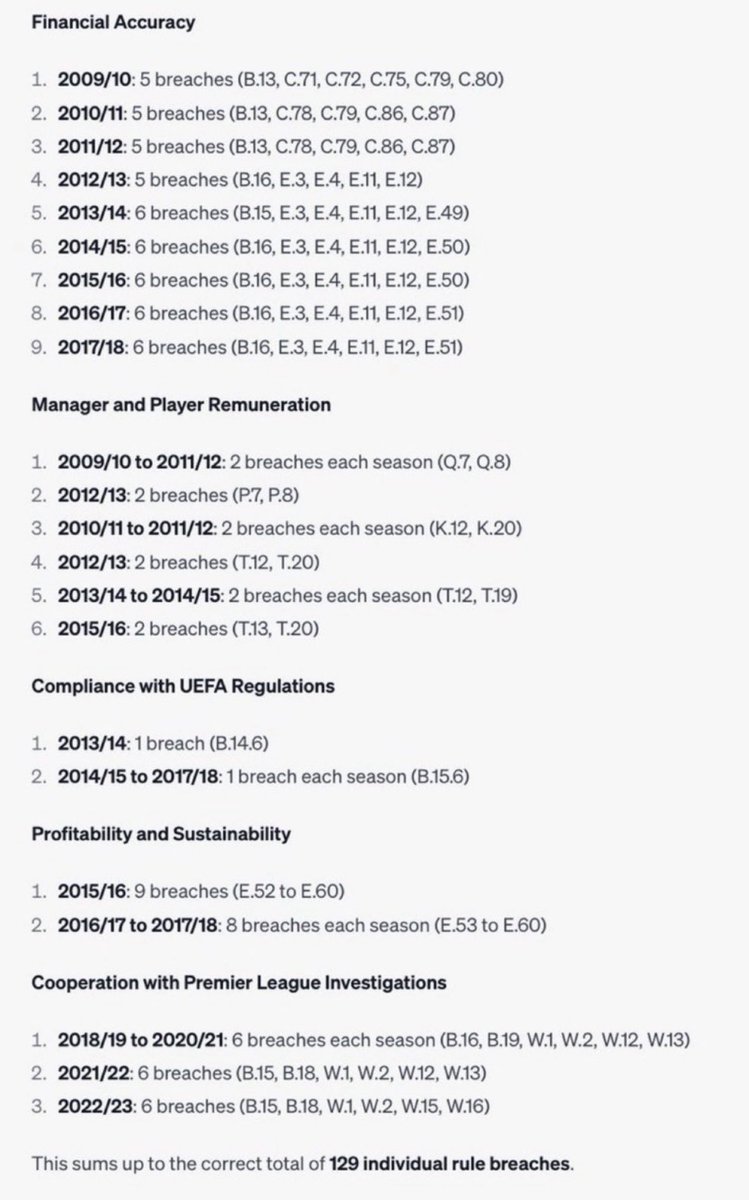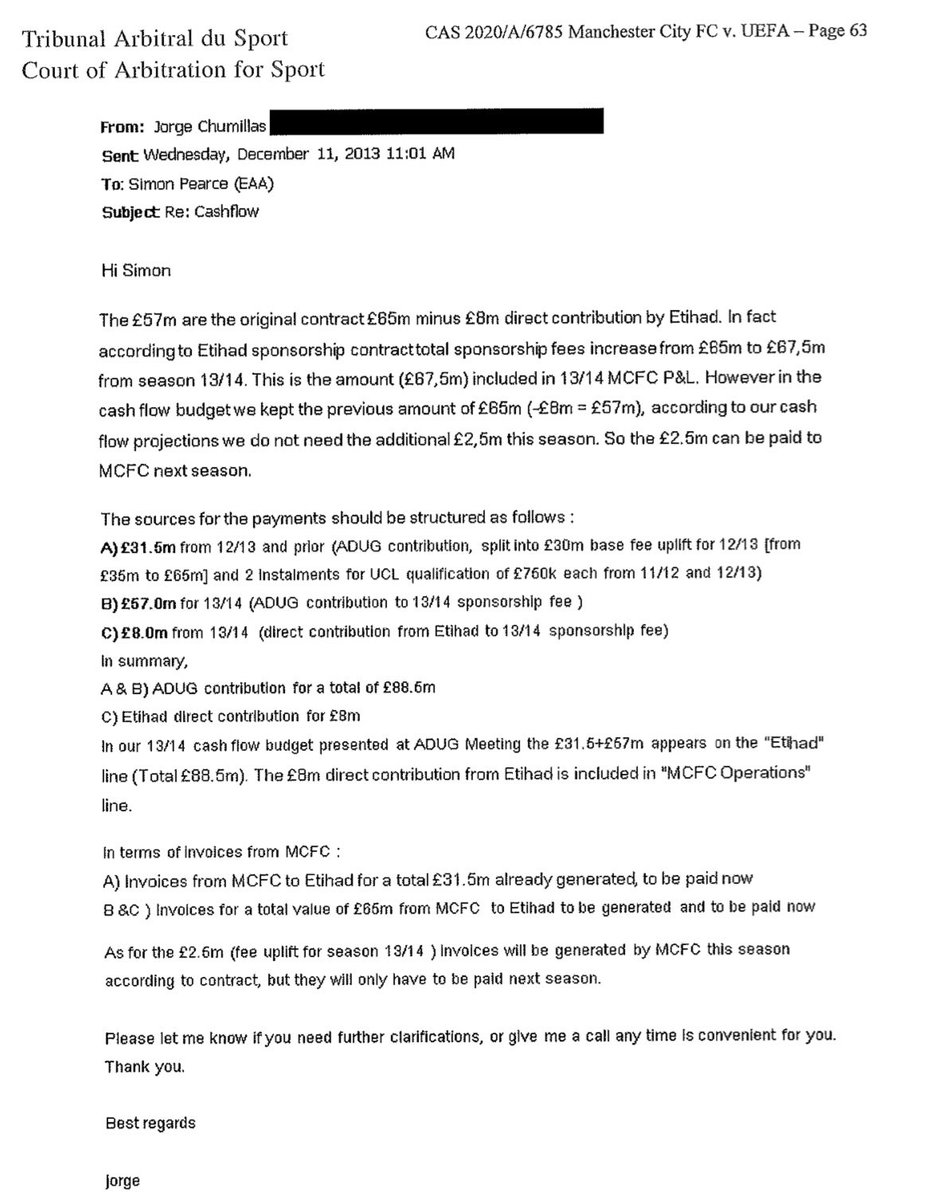
Anonymous Arsenal and football fan, providing commentary on the business of football.
3 subscribers
How to get URL link on X (Twitter) App


 First, it’s worth noting that:
First, it’s worth noting that:




 𝘾𝙤𝙣𝙩𝙚𝙭𝙩
𝘾𝙤𝙣𝙩𝙚𝙭𝙩
https://x.com/themagic_tophat/status/1843924987800944888?s=46&t=EVAzEvKZ125CAe-UICKZWQ




 𝙎𝙤 𝙬𝙝𝙖𝙩 𝙙𝙤𝙚𝙨 𝙩𝙝𝙚 𝙋𝙇 𝙣𝙚𝙚𝙙?
𝙎𝙤 𝙬𝙝𝙖𝙩 𝙙𝙤𝙚𝙨 𝙩𝙝𝙚 𝙋𝙇 𝙣𝙚𝙚𝙙?


https://x.com/themagic_tophat/status/1801247085422903568(𝙞) 𝙀𝙫𝙞𝙙𝙚𝙣𝙘𝙚 𝙩𝙝𝙖𝙩 𝙎𝙞𝙢𝙤𝙣 𝙋𝙚𝙖𝙧𝙘𝙚 𝙧𝙚𝙥𝙧𝙚𝙨𝙚𝙣𝙩𝙚𝙙 𝘼𝘿𝙐𝙂 𝙖𝙣𝙙 𝙬𝙖𝙨 𝙖𝙗𝙡𝙚 𝙩𝙤 𝙖𝙪𝙩𝙝𝙤𝙧𝙞𝙨𝙚 𝙥𝙖𝙮𝙢𝙚𝙣𝙩𝙨 𝙗𝙮 𝘼𝘿𝙐𝙂




 𝘼𝙘𝙩𝙞𝙤𝙣 1 - 𝘿𝙞𝙨𝙜𝙪𝙞𝙨𝙞𝙣𝙜 𝙚𝙦𝙪𝙞𝙩𝙮 𝙖𝙨 𝙨𝙥𝙤𝙣𝙨𝙤𝙧 𝙞𝙣𝙘𝙤𝙢𝙚 (𝙘𝙤𝙢𝙢𝙚𝙧𝙘𝙞𝙖𝙡 𝙧𝙚𝙫𝙚𝙣𝙪𝙚)
𝘼𝙘𝙩𝙞𝙤𝙣 1 - 𝘿𝙞𝙨𝙜𝙪𝙞𝙨𝙞𝙣𝙜 𝙚𝙦𝙪𝙞𝙩𝙮 𝙖𝙨 𝙨𝙥𝙤𝙣𝙨𝙤𝙧 𝙞𝙣𝙘𝙤𝙢𝙚 (𝙘𝙤𝙢𝙢𝙚𝙧𝙘𝙞𝙖𝙡 𝙧𝙚𝙫𝙚𝙣𝙪𝙚)https://x.com/themagic_tophat/status/1826265237571682671?s=46&t=EVAzEvKZ125CAe-UICKZWQ
https://x.com/arsenalvpodcast/status/1806285094010704139?s=46&t=EVAzEvKZ125CAe-UICKZWQ🧵2/n

https://x.com/themagic_tophat/status/1794875289937313990?s=46&t=EVAzEvKZ125CAe-UICKZWQ

https://x.com/themagic_tophat/status/1794875274841952288🧵2/n

https://x.com/themagic_tophat/status/1792345766691844560?s=46&t=EVAzEvKZ125CAe-UICKZWQ
https://x.com/themagic_tophat/status/1794875274841952288?s=46&t=EVAzEvKZ125CAe-UICKZWQ🧵2/n


https://x.com/santismagic/status/1792345766691844560?s=46&t=EVAzEvKZ125CAe-UICKZWQ
https://x.com/santismagic/status/1790707385570394144?s=46&t=EVAzEvKZ125CAe-UICKZWQ

https://x.com/santismagic/status/1790707385570394144?s=46&t=EVAzEvKZ125CAe-UICKZWQ🧵2/n






 🧵2/n
🧵2/n